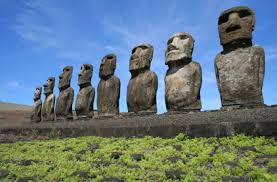Common Heritage
America’s cultural heritage is preserved not only in libraries, museums, archives, and other community organizations, but also in all of our homes, family histories, and life stories.
The Common Heritage program aims to capture this vitally important part of our country’s heritage and preserve it for future generations.
Common Heritage will support both the digitization of cultural heritage materials and the organization of outreach through community events that explore and interpret these materials as a window on the community’s history and culture.
The Common Heritage program recognizes that members of the public—in partnership with libraries, museums, archives, and historical organizations—have much to contribute to the understanding of our cultural mosaic.
Together, such institutions and the public can be effective partners in the appreciation and stewardship of our common heritage.
The program supports events organized by community cultural institutions, which members of the public will be invited to attend.
At these events experienced staff will digitize the community historical materials brought in by the public.
Project staff will also record descriptive information—provided by community attendees—about the historical materials.
Contributors will be given a free digital copy of their items to take home, along with the original materials.
With the owner’s permission, digital copies of these materials would be included in the institutions’ collections.
Historical photographs, artifacts, documents, family letters, art works, and audiovisual recordings are among the many items eligible for digitization and public commemoration.
Projects must also provide community outreach via public events that would expand understanding of the community’s heritage.
Public programs could include lectures, panels, reading and discussion groups, special gallery tours, screening and discussion of relevant films, presentations by a historian, special initiatives for families and children, interpretation by curators about items brought in by the public, workshops on preserving heritage materials, or other activities that bring humanities perspectives on heritage materials to community audiences.
These activities should provide a framework for a deeper understanding of the community members’ shared or divergent heritage.
The programs may take place before, during, and/or after the day of the digitization event.
Applicants may but need not include in their proposals a topic around which the event and the programs would be organized.
Topics proposed for programs may also be proposed for the digitization event.
The applicant institution must plan, promote, and organize the event and ensure that a wide range of historical materials can be digitized and also contextualized through public programming.
Since the help of additional institutions and organizations in the community may be needed to accomplish this work, the applicant must take responsibility for enlisting appropriate organizations or institutions, such as local libraries and museums, to contribute to the project, as needed.
The Common Heritage program aims to capture this vitally important part of our country’s heritage and preserve it for future generations.
Common Heritage will support both the digitization of cultural heritage materials and the organization of outreach through community events that explore and interpret these materials as a window on the community’s history and culture.
The Common Heritage program recognizes that members of the public—in partnership with libraries, museums, archives, and historical organizations—have much to contribute to the understanding of our cultural mosaic.
Together, such institutions and the public can be effective partners in the appreciation and stewardship of our common heritage.
The program supports events organized by community cultural institutions, which members of the public will be invited to attend.
At these events experienced staff will digitize the community historical materials brought in by the public.
Project staff will also record descriptive information—provided by community attendees—about the historical materials.
Contributors will be given a free digital copy of their items to take home, along with the original materials.
With the owner’s permission, digital copies of these materials would be included in the institutions’ collections.
Historical photographs, artifacts, documents, family letters, art works, and audiovisual recordings are among the many items eligible for digitization and public commemoration.
Projects must also provide community outreach via public events that would expand understanding of the community’s heritage.
Public programs could include lectures, panels, reading and discussion groups, special gallery tours, screening and discussion of relevant films, presentations by a historian, special initiatives for families and children, interpretation by curators about items brought in by the public, workshops on preserving heritage materials, or other activities that bring humanities perspectives on heritage materials to community audiences.
These activities should provide a framework for a deeper understanding of the community members’ shared or divergent heritage.
The programs may take place before, during, and/or after the day of the digitization event.
Applicants may but need not include in their proposals a topic around which the event and the programs would be organized.
Topics proposed for programs may also be proposed for the digitization event.
The applicant institution must plan, promote, and organize the event and ensure that a wide range of historical materials can be digitized and also contextualized through public programming.
Since the help of additional institutions and organizations in the community may be needed to accomplish this work, the applicant must take responsibility for enlisting appropriate organizations or institutions, such as local libraries and museums, to contribute to the project, as needed.
Related Programs
Promotion of the Humanities_Division of Preservation and Access
National Endowment For The HumanitiesObtain Full Opportunity Text:
https://www.neh.gov/grants/preservation/common-heritage
Additional Information of Eligibility:
Not Available
Full Opportunity Web Address:
https://www.neh.gov/grants/preservation/common-heritage
Contact:
Common HeritageNational Endowment for the Humanities400 Seventh Street, SWWashington, DC 20506202-606-8570 or preservation@neh.govpreservation@neh.gov
Agency Email Description:
preservation@neh.gov
Agency Email:
preservation@neh.gov
Date Posted:
2017-03-23
Application Due Date:
2017-06-01
Archive Date:
2018-12-05
Social Entrepreneurship
Spotlight
When it Comes to Social Enterprises, Failure is the Best Platform for Innovation

In the world of social enterprises, failure is a cringe-worthy moment nobody wants to talk about. But, social entrepreneurs can benefit from their failures.

